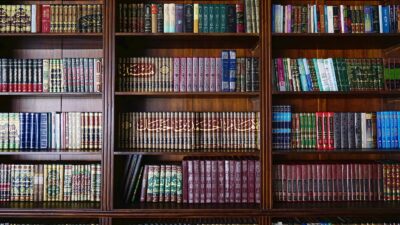One of the favourite (and historically inaccurate) arguments of the Quraniyun, is that there are no hadith works written before Imam Bukhari’s S̩ah̩īh̩.
List of extant hadith collections
In response to this claim we list a number of hadith compilations written pre- Bukhārī (d.256) which are all are extant.
- Muwaṭṭa’ of Mālik (d179)
- the Musnad of Abū Daūd al-Ṭayālisī (d203), Preserved in the Oriental library at Patna
- Ṣ̣ahīfah of Hammān ibn Munabbah (d110)
- the Muṣannaf of Abd al-Razzāq (d211),
- al-Jamī’ of Ma’mar ibn Rāshīd (d153), Preserved in, University of Ankara
- the ḥadīth collection of Juwairīyah bin Asmā from Nāfi’ (d173), Istanbul
- Al-Musnad by Zaid ibn ‘Ali (76-122).
- Musnad of Shâfi’i.
- Siyar of Awzâ’i (88-157).
- Musnad of ‘Abdullâh ibn al-Mubârak.
- Musnad of Abu Dâwûd Tayalisi (d. 204).
Bukhari’s access to written materials
Bukhārī had access to written hadith material. He stated that: “When I was to write a narration from a man, I would first ask his name, his kunayah, his descent/origin, and how he conveyed the ḥadīth, (and) if he was a person of sound comprehension. If not then I would ask him to bring out his original manuscript copy” [1]
Multitude of early hadith works
Azami states that in the first two centuries of Islam (i.e. prior to Bukhārī) there were literally thousands of hadith compilations in circulation. Most of them did not survive in their original form (often the written material was of poor quality), but were incorporated in the books of later authors [2]. Examples of this is the books of Ibn Jurayj, ath-Thawrī’ and Ibn ‘Uyayna which have been incorporated into the Muṣannaf of ‘Abd al-Razzāq as well as earlier books.
Al-Azami has produced a list of 437 scholars who had recorded hadith and all of them lived and died before the year 250 A. H.
Not extant does not imply non-existence
The Quraniyūn claim that none of these original early hadith collections are extant, and hence there is no proof that they actually existed. In reply many of the original manuscripts are extant.
Secondly, none of the original manuscripts of the Qur’ān (as dictated by the Prophet (salalahu alaihi wa sallam)) are available today. But the Quraniyūn would not claim that the Qur’ān was not written at the time of the Prophet due to lack of textual evidence. How do we know that the Prophet (salalahu alaihi wa sallam) dictated the Qur’ān as soon it was revealed? No verse in the Qur’ān orders the Prophet (salalahu alaihi wa sallam) to preserve the Qur’ān in writing.
Shaikh Mubarakpuri answers this question: “the very fact that the Prophet (salalahu alaihi wa sallam) got the revealed verses written down soon afterward, has come to us only through verbal narrations [i.e. the hadith], otherwise there is no source to know it…Now if hadith itself is not reliable, what is the source with us to confirm and prove that Holy Qur’ān was written during the period of the noble Prophet (salalahu alaihi wa sallam) [3]”
For further information rebutting doubts about hadith, see this link.
Notes:
[1] The Creed of the Imaam of Ḥadīth, Abū ‘Abdullah Muhammad bin Ismaa’eel al-Bukhārī and of the great scholars from whom he narrated.
[2] al-Azami, M. Mustafa. (1992). Studies in Early Hadīth Literature. Page 75
[3] Mubarakpuri, Safiur-Raḥmān. (2005) In reply to the mischief of the denial of Hadīth, page 55-6



